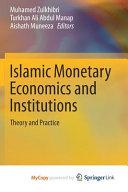Issues and Country Experiences
Islamic Investments, governed by the Shari'ah doctrines, the divine law as revealed in the Holy Quran and the teachings of the Prophet Muhammad, have witnessed significant growth and advancements since its initial development in the early 1970s. Presently, Islamic financial institutions are not just confined to the geographical boundaries of the Islamic countries, but today, they operate in and around forty countries globally, including the likes of UK and US. To be Islam compliant, financial products and transactions need to abide the Shari'ah laws. Thus, the unique features of Islamic investments pertain to prohibition of interest on loans and exchange of unequal quantities of similar goods. It also prohibits one from gambling and betting activities. In essence, Islamic Investments restricts individuals from hoarding money but encourages profit sharing basis. One of the areas where Islamic Investments have made a major impact is the stock market with the primary focus on the ethical front. This book primarily aims to introduce Islamic investments, its related products and services and finally, takes a closer look at global capital markets and Islamic Indexes.
This book primarily aims to introduce Islamic investments, its related products and services and finally, takes a closer look at global capital markets and Islamic Indexes.









